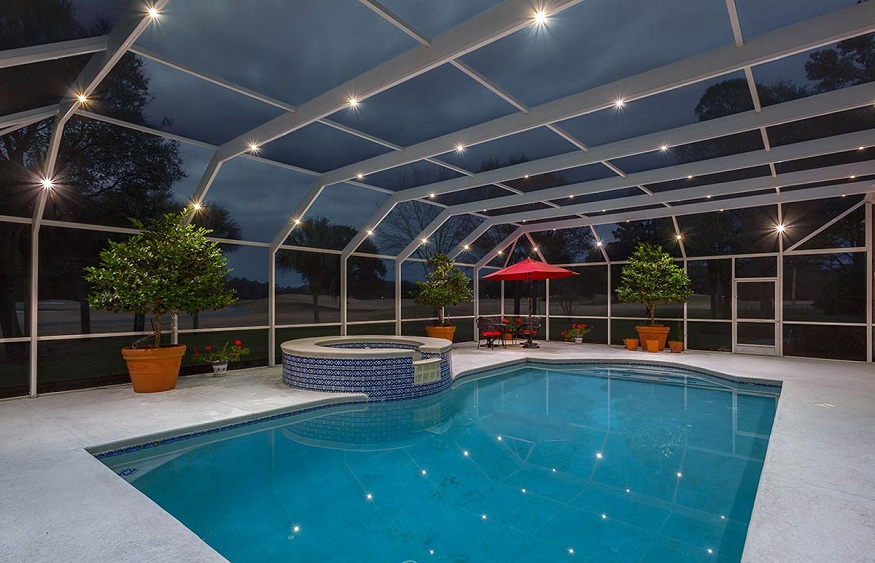The Essential Guide to Repairing Pool Screens

Pool screens are a great addition to any house with a pool since they protect you from bugs and other debris while letting you enjoy the outdoors without being bothered by them. Pool screens, however, can deteriorate with time and need maintenance, just like any other building. We will delve into the topic of pool screen repair in this thorough guide, covering everything from common problems to do-it-yourself fixes and when to hire a pro.
Detecting the Issue
It’s crucial to correctly diagnose the problem before beginning pool screen repair. This makes sure you deal with the actual problem rather than simply the symptoms. Typical issues include:
- Small tears and holes are common in pool screens because of normal wear and tear. If addressed right away, they could quickly get better.
- Screens that are sagging: Over time, screens may begin to sag, which not only makes them look unsightly but may also reduce their effectiveness.
- The strength of the screen’s frame determines how durable it is. The integrity of the screen must be maintained by repairing any damaged or corrupted structures.
Pool screen repair at home
You can attempt do-it-yourself pool screen repair for small problems. Here is a detailed instruction:
- Materials Required: Compile the required supplies, which should include a patch kit, a utility knife, a spline roller, and new screening material.
- Use a utility knife to carefully cut away the damaged area of the screen to remove it. Be careful not to harm the adjacent screen.
- Organize the Space: Make sure the frame is dust- and debris-free. Trim any spline (the rubber cord holding the screen in place) that is faulty or loose.
- Cut a piece of replacement screen material slightly larger than the hole, and then attach it. When using a spline roller, press it into the frame groove, lay it over the aperture, and secure it in place with the spline.
- Trim Extra Screen: Use a utility knife to trim any extra screen material, making sure the edges are secure and well-kept.
- Examine and Test: Look for any gaps or loose areas in your repair job. Make sure the screen is taut and fixed firmly.
When to Contact a Professional
Although DIY fixes might save you money, there are some circumstances where Pool Screen Repair Service is necessary:
- Significant Damage: It is better to leave the repair of your screen to professionals who can evaluate the issue and suggest the best course of action.
- Frame repairs: If the frame of your screen is significantly rusted or damaged, it might need specialized welding or replacement, which experts should do.
- Rescreening the Entire Pool Enclosure: Having the entire enclosure professionally rescreened may be more economical and effective if your pool screen is exhibiting indications of wear and tear throughout.
Maintenance Advice
The following maintenance advice may help your pool screen last longer and require fewer repairs:
- Clean your pool screen frequently to get rid of dirt, dust, and debris.
- Trim Overhanging Trees: To avoid harm from falling limbs, trim any branches that hang over your pool enclosure.
- Every year, have a professional check your pool screen for symptoms of deterioration.
Conclusion
To maintain the functionality and enjoyment of your outdoor haven, pool screen maintenance is a crucial activity. Whether you want to use DIY tricks or hire a specialist, taking care of problems right away can keep your pool area pest-free and looking great. You can increase the lifespan of your pool screen and spend many hours relaxing by the water by adhering to good maintenance procedures.

